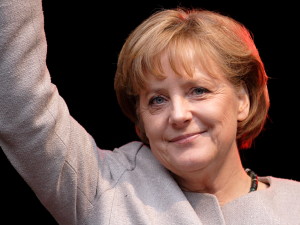Alternative for Germany Gains Support in Berlin Elections
German Chancellor Angela Merkel’s political coalition between the Christian Democratic Union (CDU) and the Social Democratic Party of Germany (SPD) faced setbacks in Berlin’s elections on September 18, just as the rightist-conservative Alternative for Germany party (AFD) gained increasing support.

While support since previous elections fell by 6.7 percent and 5.8 percent from the SPD and CDU, respectively, AFD increased its electoral success by finally achieving a double-digit showing of 14.1 percent. AFD was able to attract approximately 69,000 former non-voters by criticizing Merkel’s open-door immigration policy, which much of Germany’s population dislikes. With this support, AFD is poised to enter the German parliament for the first time. The AFD’s representation in the Bundestag will likely increase the pressure on Merkel’s current political right-left coalition.
Merkel repeatedly asserted that AFD did not have any solutions to Germany’s foreign policy issues, yet the elections have thus far reflected a growing public sentiment against housing refugees. Still, in a recent poll conducted by Tagesschau, Berliners listed local economy, education, and social justice as the most influential factors in their votes. Many voters believe that Berlin, which suffers from high unemployment rates and low tax earnings, needs economic reforms. Even if SPD and CDU maintain their power in parliament, there are pressing issues affecting Berliners that need to be fixed.
Other notable results from the Berlin election include the victory of the Green Party (Grüne) with 15.9 percent of votes and of the Left (Die Linke) with 15.7 percent, which reflect consistent popularity for both parties. Mayor of Berlin, Michael Müller, of the SPD, indicated his desire to coalesce with the Green Party. The political dynamics in Germany would change dramatically with newly formed coalitions. The alliance between the Green Party and SPD, for example, could push SPD’s platform further to the left, thus strengthening rightist parties like AFD. Christoph Hasselbach, editor of Deutsche Welle, believes that the German population does not want an AFD government, but favors a party that speaks out for the refugee concerns.
With more state elections leading up to the national election next year, Merkel’s forceful immigration policy is poised to be a determining factor in final electoral vote tallies.
